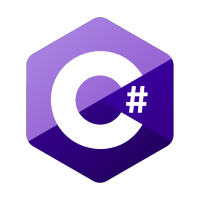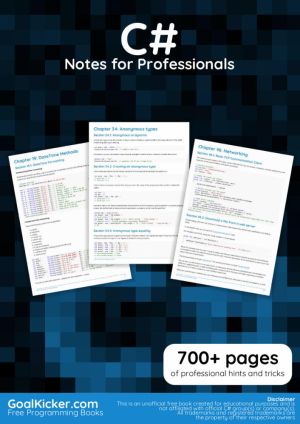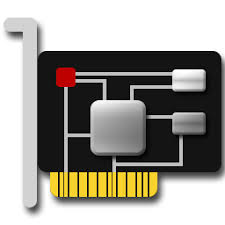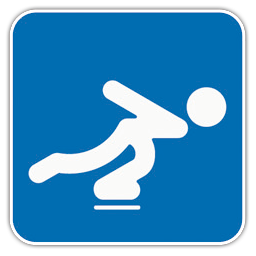کتاب C# Notes for Professionals یک کتاب بسیار مفید برای آنهایی هست که دوست دارند زبان C# را به صورت اصولی یاد بگیرند. در این کتاب تقریبا همهی مباحث زبان سیشارپ و مثالها و نکات مهم هر بخش آورده شده است.
برای دریافت رایگان کتاب الکترونیکی C# Notes for Professionals میتوانند به ادامهی این مطلب مراجعه بفرمایید.
سر فصلهای کتاب C# Notes for Professionals به شرح زیر میباشد:
- Chapter 1: Getting started with C# Language
- Chapter 2: Literals
- Chapter 3: Operators
- Chapter 4: Conditional Statements
- Chapter 5: Equality Operator
- Chapter 6: Equals and GetHashCode
- Chapter 7: Null-Coalescing Operator
- Chapter 8: Null-conditional Operators
- Chapter 9: nameof Operator
- Chapter 10: Verbatim Strings
- Chapter 11: Common String Operations
- Chapter 12: String.Format
- Chapter 13: String Concatenate
- Chapter 14: String Manipulation
- Chapter 15: String Interpolation
- Chapter 16: String Escape Sequences
- Chapter 17: StringBuilder
- Chapter 18: Regex Parsing
- Chapter 19: DateTime Methods
- Chapter 20: Arrays
- Chapter 21: O(n) Algorithm for circular rotation of an array
- Chapter 22: Enum
- Chapter 23: Tuples
- Chapter 24: Guid
- Chapter 25: BigInteger
- Chapter 26: Collection Initializers
- Chapter 27: An overview of C# collections
- Chapter 28: Looping
- Chapter 29: Iterators
- Chapter 30: IEnumerable
- Chapter 31: Value type vs Reference type
- Chapter 32: Built-in Types
- Chapter 33: Aliases of built-in types
- Chapter 34: Anonymous types
- Chapter 35: Dynamic type
- Chapter 36: Type Conversion
- Chapter 37: Casting
- Chapter 38: Nullable types
- Chapter 39: Constructors and Finalizers
- Chapter 40: Access Modifiers
- Chapter 41: Interfaces
- Chapter 42: Static Classes
- Chapter 43: Singleton Implementation
- Chapter 44: Dependency Injection
- Chapter 45: Partial class and methods
- Chapter 46: Object initializers
- Chapter 47: Methods
- Chapter 48: Extension Methods
- Chapter 49: Named Arguments
- Chapter 50: Named and Optional Arguments
- Chapter 51: Data Annotation
- Chapter 52: Keywords
- Chapter 53: Object Oriented Programming In C#
- Chapter 54: Recursion
- Chapter 55: Naming Conventions
- Chapter 56: XML Documentation Comments
- Chapter 57: Comments and regions
- Chapter 58: Inheritance
- Chapter 59: Generics
- Chapter 60: Using Statement
- Chapter 61: Using Directive
- Chapter 62: IDisposable interface
- Chapter 63: Reflection
- Chapter 64: IQueryable interface
- Chapter 65: Linq to Objects
- Chapter 66: LINQ Queries
- Chapter 67: LINQ to XML
- Chapter 68: Parallel LINQ (PLINQ)
- Chapter 69: XmlDocument and the System.Xml namespace
- Chapter 70: XDocument and the System.Xml.Linq namespace
- Chapter 71: C# 7.0 Features
- Chapter 72: C# 6.0 Features
- Chapter 73: C# 5.0 Features
- Chapter 74: C# 4.0 Features
- Chapter 75: C# 3.0 Features
- Chapter 76: Exception Handling
- Chapter 77: NullReferenceException
- Chapter 78: Handling FormatException when converting string to other types
- Chapter 79: Read & Understand Stacktraces
- Chapter 80: Diagnostics
- Chapter 81: Overflow
- Chapter 82: Getting Started: Json with C#
- Chapter 83: Using json.net
- Chapter 84: Lambda expressions
- Chapter 85: Generic Lambda Query Builder
- Chapter 86: Properties
- Chapter 87: Initializing Properties
- Chapter 88: INotifyPropertyChanged interface
- Chapter 89: Events
- Chapter 90: Expression Trees
- Chapter 91: Overload Resolution
- Chapter 92: BindingList
- Chapter 93: Preprocessor directives
- Chapter 94: Structs
- Chapter 95: Attributes
- Chapter 96: Delegates
- Chapter 97: File and Stream I/O
- Chapter 98: Networking
- Chapter 99: Performing HTTP requests
- Chapter 100: Reading and writing .zip files
- Chapter 101: FileSystemWatcher
- Chapter 102: Access network shared folder with username and password
- Chapter 103: Asynchronous Socket
- Chapter 104: Action Filters
- Chapter 105: Polymorphism
- Chapter 106: Immutability
- Chapter 107: Indexer
- Chapter 108: Checked and Unchecked
- Chapter 109: Stream
- Chapter 110: Timers
- Chapter 111: Stopwatches
- Chapter 112: Threading
- Chapter 113: Async/await, Backgroundworker, Task and Thread Examples
- Chapter 114: Async-Await
- Chapter 115: Synchronization Context in Async-Await
- Chapter 116: BackgroundWorker
- Chapter 117: Task Parallel Library
- Chapter 118: Making a variable thread safe
- Chapter 119: Lock Statement
- Chapter 120: Yield Keyword
- Chapter 121: Task Parallel Library (TPL) Dataflow Constructs
- Chapter 122: Functional Programming
- Chapter 123: Func delegates
- Chapter 124: Function with multiple return values
- Chapter 125: Binary Serialization
- Chapter 126: ICloneable
- Chapter 127: IComparable
- Chapter 128: Accessing Databases
- Chapter 129: Using SQLite in C#
- Chapter 130: Caching
- Chapter 131: Code Contracts
- Chapter 132: Code Contracts and Assertions
- Chapter 133: Structural Design Patterns
- Chapter 134: Creational Design Patterns
- Chapter 135: Implementing Decorator Design Pattern
- Chapter 136: Implementing Flyweight Design Pattern
- Chapter 137: System.Management.Automation
- Chapter 138: System.DirectoryServices.Protocols.LdapConnection
- Chapter 139: C# Authentication handler
- Chapter 140: Pointers
- Chapter 141: Pointers & Unsafe Code
- Chapter 142: How to use C# Structs to create a Union type (Similar to C Unions)
- Chapter 143: Reactive Extensions (Rx)
- Chapter 144: AssemblyInfo.cs Examples
- Chapter 145: Creating a Console Application using a Plain-Text Editor and the C# Compiler (csc.exe)
- Chapter 146: CLSCompliantAttribute
- Chapter 147: ObservableCollection
- Chapter 148: Hash Functions
- Chapter 149: Generating Random Numbers in C#
- Chapter 150: Cryptography (System.Security.Cryptography)
- Chapter 151: ASP.NET Identity
- Chapter 152: Unsafe Code in .NET
- Chapter 153: C# Script
- Chapter 154: Runtime Compile
- Chapter 155: Interoperability
- Chapter 156: .NET Compiler Platform (Roslyn)
- Chapter 157: ILGenerator
- Chapter 158: T4 Code Generation
- Chapter 159: Creating Own MessageBox in Windows Form Application
- Chapter 160: Including Font Resources
- Chapter 161: Import Google Contacts
- Chapter 162: Garbage Collector in .Net
- Chapter 163: Microsoft.Exchange.WebServices
- Chapter 164: Windows Communication Foundation
برای دانلود رایگان کتاب C# Notes for Professionals به صورت فایل pdf میتوانید از این لینک اقدام نمایید.
دانلود کتاب رایگان C# Notes for Professionals




